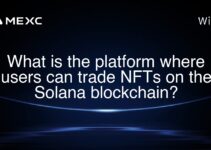Trading is generally permitted in Islam, provided it adheres to the principles outlined in Sharia law, which prohibits interest (riba), uncertainty (gharar), and investments in businesses involved in prohibited activities such as alcohol, gambling, and pork-related products. This compliance ensures that all trading activities are conducted ethically and transparently, aligning with the moral and social values of Islam.
Why Compliance with Islamic Principles Matters for Investors and Traders
For Muslim investors and traders, ensuring that their financial activities are in line with Islamic principles is not just a legal obligation but also a moral one. The global Islamic finance market, which includes assets ranging from banking to bonds and equities, has witnessed significant growth, reaching an estimated $3.8 trillion by 2024. This growth reflects the increasing demand for financial services that comply with Islamic law, highlighting the importance of Sharia-compliant trading platforms and investment products.
Examples and Applications in the Modern Financial Landscape
Several financial products and services have been developed to meet the needs of Islamic traders and investors. For instance, Islamic Forex accounts and Halal stock trading platforms ensure that users can engage in trading without violating Sharia principles. Companies like MEXC have been instrumental in providing these Sharia-compliant trading environments, offering products that exclude companies dealing in prohibited activities and utilizing profit-sharing agreements instead of interest-based ones.
Moreover, the advent of Islamic fintech solutions in 2025 has further revolutionized this sector. Innovations such as blockchain technology have been harnessed to create transparent and efficient Islamic financial products. For example, smart contracts on blockchain platforms can automate the compliance of financial agreements with Sharia law, reducing the risk of human error and enhancing the trustworthiness of Islamic financial transactions.
Relevant Data and Statistics
The Islamic finance sector’s growth is supported by robust data. According to the Islamic Finance Development Report of 2024, the number of Islamic fintech startups has increased by 20% annually, indicating a surge in technological adoption among Muslim-majority countries. Additionally, the report highlights that the assets in Sharia-compliant funds have seen a compound annual growth rate (CAGR) of 15% over the past five years, outpacing many conventional investment funds.
This growth is not limited to predominantly Muslim countries; Western markets have also seen a rise in demand for Islamic financial services. For instance, in the United States and the United Kingdom, there has been a notable increase in the offerings of Islamic banking and finance courses at major universities, preparing a new generation of financial professionals who are well-versed in both conventional finance and Sharia-compliant practices.
Conclusion and Key Takeaways
Trading is permissible in Islam when conducted according to Sharia law, which emphasizes ethical and transparent financial practices. The growth of the Islamic finance sector demonstrates a robust demand for such services, reflecting the desire of Muslim investors to align their financial activities with their religious beliefs. Platforms like MEXC, which offer Sharia-compliant trading options, play a crucial role in facilitating access to these services, ensuring that Islamic principles are upheld in the financial sector.
Key takeaways include the importance of understanding and adhering to Islamic financial principles for Muslim traders and investors, the significant role of technological innovations like blockchain in enhancing the transparency and efficiency of Islamic finance, and the global expansion of Sharia-compliant financial services beyond the Muslim world. As the sector continues to grow, it will likely offer increasing opportunities for inclusive financial practices that cater to ethically-conscious investors worldwide.
For those involved in or entering the Islamic finance market, staying informed about the latest developments and adhering to Sharia principles in financial transactions will be crucial for success and ethical engagement in the modern economic landscape.
DISCLAIMER
Article(s) displayed above is/are generated by artificial intelligence (AI) and may not be manually reviewed by a member of the MEXC team before it is published. The content displayed above does not represent the views of MEXC or its affiliates. Similarly, MEXC does not endorse the accuracy or truthfulness of the above data. Under no circumstance should reliance be placed on the above information. You are recommended to consult a professional, independent advisor where necessary.



